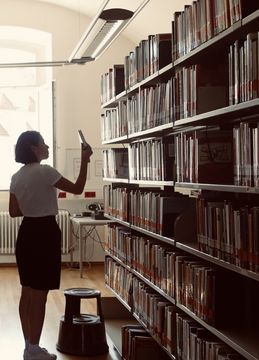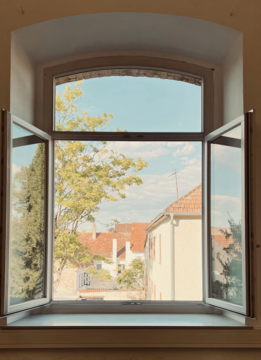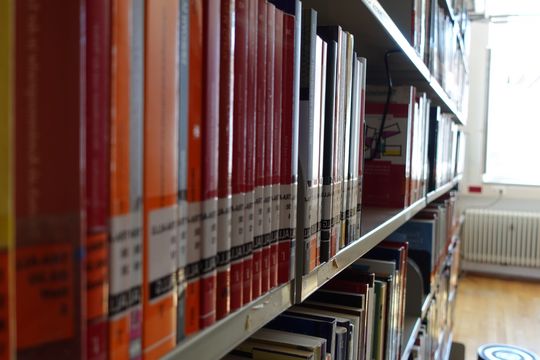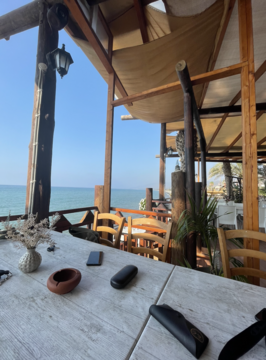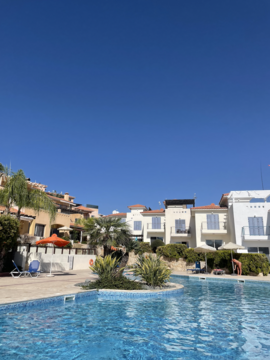If you don't have a closed book exam, don't celebrate too early. Because you may need to write a "Hausarbeit"!
The whole month of August I was home, living a very monotonous life: after waking up on weekday mornings, I had no appetite for breakfast. I sat at my desktop, reading emails, answering messages, and planning what I would do for the day. Usually, I went to the cafeteria for lunch and spent the afternoon in the library, walking around the library corridor when I sat for too long.
The thesis submission is not due this month but at the end of next month. There are relatively few closed-book exams for the Master-of-Arts students, barely any for my major, and the exam results are almost entirely determined by the papers. The papers were divided into many different forms, including “translation commentary”, “semester papers” (Hausarbeit), and “Portfolio”. Towards the end of the semester, the conversation with my classmates became:
-„How many exams do you have?“
– „I don’t have any closed-book exams.“
– „Ah! Luck you!“
– „But I have three Hausarbeiten.“
– „Bless you.“
1. Hausarbeit: What is it?
For my Master’s program, I have to take eight different modules, which means that I have at least eight module exams. Most of the courses I have to take are in the form of Hausarbeit writing. Each Hausarbeit I had to write was about 15-20 pages long, and the format was similar to a small thesis, from the cover of the text to the table of contents, the main body of the paper, and the references.
2. How to plan a Hausarbeit
One of the best things about studying in Germany is the possibility that students can plan their own studies; however, the consequence is that without a certain amount of self-discipline, completing their studies on time may become a problem. My three term papers/Hausarbeiten were planned for the middle three weeks of August. By the end of the first week, I have already known that it would be impossible to finish them in a such short time.
After the selection phase at the beginning of each semester, in the first session professors will talk more or less about the requirements for the paper. Some of them may give a list of paper topics and interested students can pick one to write about under an appropriate theme, some will ask students to write based on the presentation topics of the class, while others give more room for self-expression and let students choose a topic related to the general theme of the course.
In many seminars, students are required to give a presentation on a topic in groups of one or two. In order to prepare for the presentation, it is necessary to read a lot of literature. Due to the huge time commitment upfront for this assignment, I usually choose to write the paper based on my pre. This can also save some time in searching and figuring out a new topic.
3. Communication
If the topic are decided, and if at this point the responsible professor’s email does not automatically reply that he or she is already on vacation. Then congratulations, there is still time for you to make an appointment with this teacher to talk about the plan for the writing.
I am studying Translation at the University of Mainz. Many students might think that I am dealing with Chinese-German texts every day, but in fact, I am not. Most of my courses are focused on translation theories. Even in the practical sessions, where I go through the practical sessions, I also need to try to analyze what kind of translation strategies are hidden behind the translation. It means that, no matter what languages you are studying, you can sit with your university friends and exchange opinions about your papers.
In communication with Chinese students, since most of the courses are the same, I can always get some inspiration about thesis topics and have a better understanding of the requirements; while when I talk with other students, sometimes I will have the reaction: „Ah! So, this is also possible.“
If you have more discussions with your friends at the university, you will slowly know how it works: for example, sending the outline to the professor, and making a detailed appointment with her or him to further discuss the topic you want to write; if you are at a loss on the theme, you can also ask students who have already written similar papers to get some suggestions; if you have finished writing, you can ask someone to proofread it. It is better if they are professionals in translation so that you can not only improve the quality of your paper in terms of language but also further refine your arguments…
4. The hardest part: Practice
When it comes to the actual practice of writing, I found that everything is not as easy as I thought. As an example: One of the papers I’m writing is a part of Cultural Studies, which is a combination of archaeology and mythology. So, from that point of view, it was already difficult for me in terms of finding literature. Since the main campus of my university and the campus of my faculty are not in the same place, if I want to borrow a book on archaeology, I need to reserve it from the main campus. But if the book is not in hand, it is difficult to determine through a simple introduction on the Internet whether a book is suitable to serve my paper.
5. How to concentrate on writing
„Go shopping in Stuttgart tomorrow? We’ll pick you up by car.“
Sometimes friends would ask me to go out for shopping or dinner, and if I said yes, the whole day would be gone. Or if I’m not in the mood to write, I won’t turn on my computer. In the beginning, I planned to work hard to write my dissertation 7×24 hours, it was obviously too idealistic to be realized.
Vacation is the biggest motivation for me to keep writing. After a few days in Italy at the beginning of August, my desire to travel was fulfilled, so I didn’t think about going out when I was at home, while another trip at the end of August told me all the time that I had to write hard, otherwise I wouldn’t be able to enjoy my life at the end of August.
The difference between the Chinese education model and the German one is quite big. At the undergraduate level, my university arranged all the tasks clearly, like when to do what. So when I arrived in Germany, I suddenly started to have to organize my study schedule, which made me feel very out of place. After two years in Germany, things are slowly getting a little better now.
Until I left for Cyprus at the end of August, I had completed about two papers, and although I still need to reread and revise them, the bulk of them are done. The trickiest one I also have started. Since the final deadline is at the end of September, I can still spend some more time writing it next month.
In the present moment, let me relax for a while.
